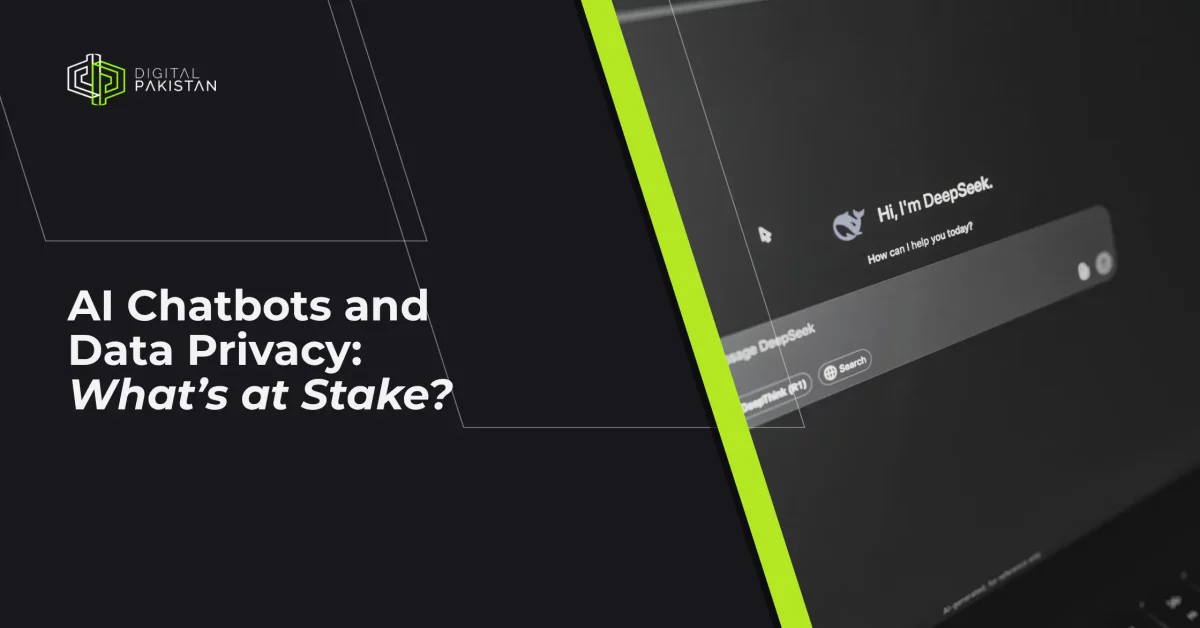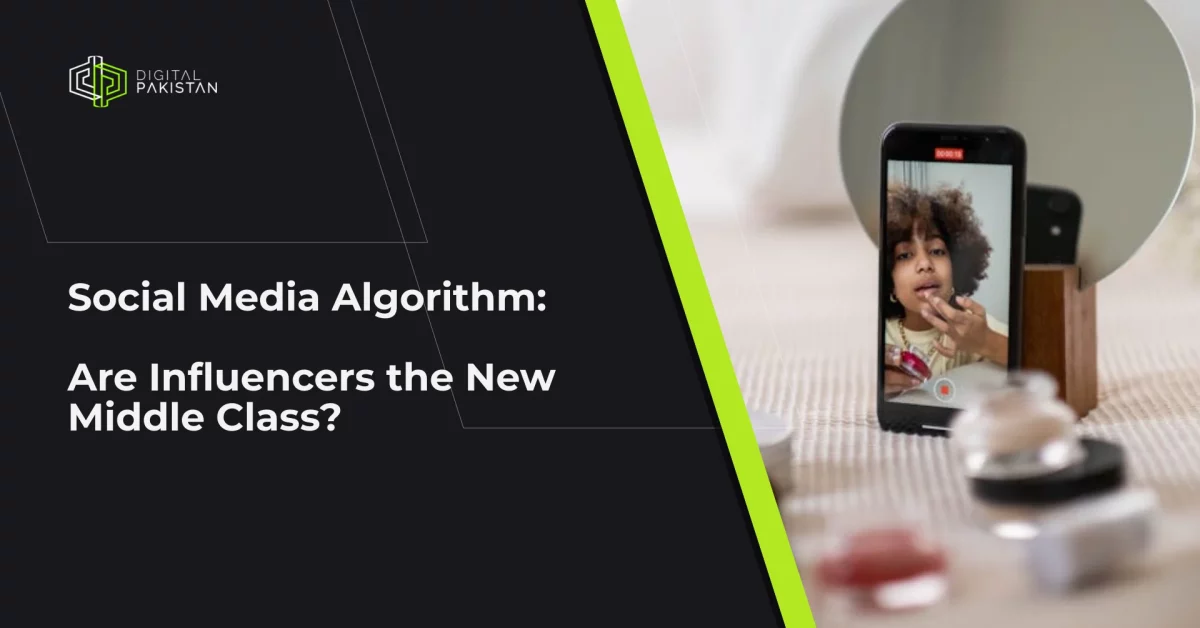
Pakistan Proposes Tax Exemption for US Tech Firms
July 31, 2025
Pakistan Unveils Virtual Asset Law Framework
July 31, 2025AI chatbots like ChatGPT, Gemini, DeepSeek, and Copilot have quietly slipped into our daily routines. Whether it’s drafting an email, debugging code, answering customer queries, or even providing a little emotional support, these tools feel like the ultimate digital assistant.
But there’s a question we don’t ask nearly enough: What’s happening to all the data we share with them? Most people assume their conversations are private. But are they really?
What Data Are These Bots Collecting?
When you type into an AI chatbot, you’re sharing far more than just your words. These platforms collect:
- Your prompts, files, images, and even voice inputs
- Metadata like IP addresses, device details, and geolocation
- Personal information such as your name, email, and payment details at sign-up
According to OpenAI’s Privacy Policy, this data can be used to improve AI models, train future versions, detect abuse, and ensure safety. Unless you explicitly opt out, even sensitive conversations may be reviewed by human trainers.
A 2024 Nightfall AI audit revealed that 63% of ChatGPT user data contained personally identifiable information (PII), but only 22% of users knew how to opt out. That’s a huge transparency gap.
Yes, OpenAI offers some safeguards like turning off chat history or entering zero-data retention agreements for enterprise users but for most everyday users, these settings remain buried and underused.
The Privacy Illusion
Here’s the problem: people often treat chatbots as trusted companions or personal therapists. But unlike encrypted messaging apps such as Signal or WhatsApp, AI chatbots don’t offer end-to-end encryption.
In fact, OpenAI CEO Sam Altman recently warned in a podcast that deeply personal chats, whether used for therapy or coaching, are not legally protected and could be accessed in legal proceedings. If you’re sharing medical history, financial details, or business strategies, you might be exposing more than you realize.
Data Retention: Why Deleted Doesn’t Always Mean Gone
In 2025, a U.S. court ordered OpenAI during a lawsuit filed by The New York Times to preserve all user conversations, even those marked as deleted. This ruling affects all users, free or paid, unless they’re covered by enterprise zero-retention agreements.
Previously, OpenAI deleted chats after 30 days (unless flagged for abuse). Now, because of this order, your conversations could be stored indefinitely—a troubling thought for anyone who’s ever shared sensitive information.
The Legal and Ethical Gray Zone
Under Europe’s GDPR, users have the “right to be forgotten.” But with indefinite retention and vague anonymization practices, compliance is murky at best. In 2023, Italy temporarily banned ChatGPT, while Poland opened an investigation into its data handling practices.
On the ethical front, informed consent remains a problem. Too often, users simply don’t know how their data is used or that it might be shared with third-party vendors. With no global privacy framework for AI, risks multiply when data crosses borders.
Data Leaks and Real-World Incidents
The risks aren’t hypothetical. In 2023, a bug in ChatGPT exposed other users’ chat titles and billing information. Around the same time, Samsung employees accidentally leaked proprietary code by using ChatGPT for internal tasks.
Then there’s the threat of prompt injection attacks, where hackers trick AI into revealing hidden or sensitive data. Add third-party plugins (which often collect even more data) and image generation tools (sometimes embedding GPS metadata into files), and the potential for accidental exposure grows even further.
How to Protect Yourself
If you use AI chatbots, here’s how you can reduce your risk:
- Avoid oversharing: Don’t input financial details, medical records, or confidential business information.
- Turn off chat history: Or use temporary chat modes where available.
- Review privacy settings: Opt out of data being used for training, if possible.
- Use enterprise tools: Businesses should insist on zero-data retention agreements.
- Push for transparency: Companies must adopt clearer privacy notices and user-friendly controls.
The Bottom Line
AI chatbots are powerful, but they are not private by default. Unlike encrypted messaging apps, their design prioritizes learning from your data, not locking it away. Until regulators and AI companies provide stronger safeguards, users must treat these tools as public assistants with a very long memory, not private confidants.






